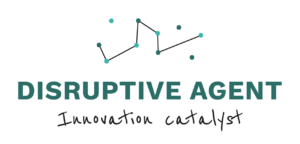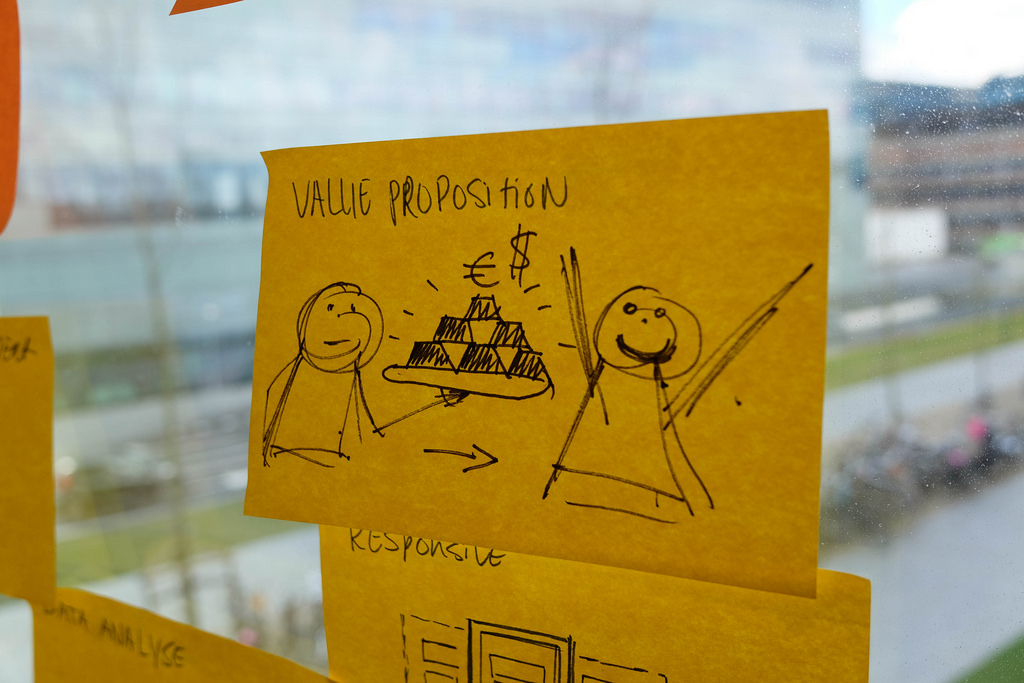Success is intimately linked to a consumer-centric approach, at every stage of the creation of a product, service or company. Being user-centric means to put the client at the heart of every decision, be it creative or economic, short-term or long-term. If your client is not on board, soon your company won’t be either.
And yet, there is a fundamental resistance. Innovators will find many reasons to avoid showing their idea, prototype, pricing strategy, communication elements, to consumers. They often prefer to wait for their project to be completed to ask users for their opinions. Too late, as it very often occurs.
In my work with startups and entrepreneurs I have seen this countless times. I came to the conclusion that at the heart of this unfortunate dynamic lie 2 main reasons, linked to our social human nature.
 The first factor is ego.
The first factor is ego.
Ego is a very powerful and positive force that is needed in every person venturing into the unknown, entrepreneurs being an excellent example. It will drive you to believe strongly in what you set yourself for, will help you get through tough times, navigate obstacles and push-backs that could hinder your progress.
Ego, in a creative venture, is a necessity. And yet, it can blind someone from other points of view, lead them to be dismissive of others’ opinions.
For an entrepreneur, it is very important to reach an internal balance where ego stays this driving force, while keeping an open mind to what others (potential clients, strategic partners, investors, stakeholders) have to say to help improve the product, service or company being built.
Keeping in mind that the product or service is created for someone else, who may not be equipped with the innovator’s level of technical expertise (or any other type of expertise), will help stay focused on what their consumer want, and what they can handle.
 The second factor is fear of rejection.
The second factor is fear of rejection.
No one likes to feel apart, rejected, mocked, not listened to. At least no innovator that I met so far, especially because they are in love with their ideas and believe in it so strongly. This is why it is so frequent that innovators avoid showing their ideas to future clients.
It takes 3 elements to get past this fear of rejection: resolution, bravery and love of the client.
– Resolution: facing potential clients with the intention of letting them possibly destroy your idea, after months and months of hard work and love poured into it, will happen only if the innovator decides to take this risk. This is a rational decision, made contrary to the emotional part of her/him, telling them NOT to go ahead with it.
– Bravery: once the decision is made, it takes courage to execute it. It takes a lot of courage to go out of the building, as Steve Blank puts it, meet with potential clients or users, and ask them honest feedback on an idea, prototype, etc. It’s like your first time in everything: you need this internal push to help you face the unknown (the users reactions to your idea, in this case).
– Love of the client: a change of paradigm that can help the entrepreneur take this leap of faith, is to switch from her/his viewpoint to their client’s. Putting the user’s needs and motivations first will help reduce the pain of hearing their unbiased reaction to your material. Trying to genuinely understand what the customers want, what they need, how they want the obstacles they face addressed and why, will help the innovator reduce the gap between the vision of the product / service they are building and the expectations of their future client segments.
Enters the Lean Startup philosophy.

An entrepreneur that faces the challenges described above will find in Lean Startup a framework that helps (forces!) her or him to keep their finger on the pulse of the consumers and constantly measure the desirability of the project. Enlisting early adopters and designing the offer with them ensures that when the project reaches its market, it already has an established customer base.
At Disruptive Agent, we specialize in Lean Startup methodology, and we have witnessed firsthand the benefits that entrepreneurs derive from listening to their consumers in the creation of their business. If you want to know more about this method, don’t hesitate to contact us, we’ll be happy to show you the ropes.


 The first factor is ego.
The first factor is ego. The second factor is fear of rejection.
The second factor is fear of rejection.